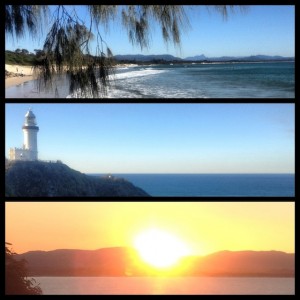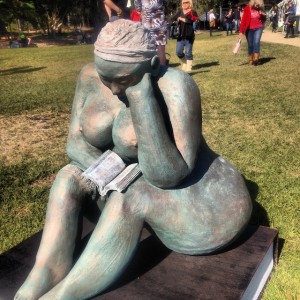We who claim walking as our salvation do so for myriad reasons, many mysterious even to ourselves. We plod across sand, mud or the dreaded asphalt, carrying water, the ubiquitous dried fruit, and a sleeping bag or tent if we’re fortunate enough to be setting out for a “proper” walk. I’ve shouldered packs as light as air and as heavy as twenty kilograms. I’ve even transported sins. Currently, though, I am laden with grief, and I often find myself in the valley of its shadow.
I’ve been on this path for nine months now – a period of time that usually implies birth. I keep thinking: Shouldn’t I have produced something by now? Made myself over? Haven’t I learned anything? At the many daily crossroads, the way should be obvious, shouldn’t it? But it isn’t.
Mostly I feel I am going nowhere. And quite fast.
 On good days I remind myself that after 1300 kilometres under my sin-load, I did make it to Finisterre. I made it to world’s end, to a place where I was free of pain – of my own, and of others. I did it by trudging through flood, snow and searing heat, and never questioning the task. I did it by staying the course when I didn’t want to. I did it by accepting the help of strangers, many of whom became friends. I did it by seeing beauty. Over and over, the beauty of the natural world saved me when my heart or my heels hurt.
On good days I remind myself that after 1300 kilometres under my sin-load, I did make it to Finisterre. I made it to world’s end, to a place where I was free of pain – of my own, and of others. I did it by trudging through flood, snow and searing heat, and never questioning the task. I did it by staying the course when I didn’t want to. I did it by accepting the help of strangers, many of whom became friends. I did it by seeing beauty. Over and over, the beauty of the natural world saved me when my heart or my heels hurt.
The caminos I’ve walked, not just in Spain but back here in Australia, taught me the road can break you. It will. It does. Those long trails insisted that everything has a cost. Even life. Even love. But when I kept walking, in that blind-faith action of one-foot-then-the-other, I came through. To somewhere.
And I was remade.
I’m not sure I would have come through this last nine months without my experiences of walking, or the gifts it has given me: resilience; tenacity; an eye for overlooked beauty; a hunger for connection to the natural world; a village of friends who can do hard yards with me; and the lessons of the snail…
Slow. Slow.
This road I’m walking now is long and flinty. Uneven. Lonely, too. But there are glimmers in the dust, and moments of radiance, too. Look left, look right, look down, look up. They are there for the finding.
On my mourning walks, continuance doesn’t always feel possible, but when the sun shouts to me, or the rain pelts on me, then life races in my veins, and I stride out, relieved that the world is as I knew it.
On less flamboyant sky-days, when the world offers mostly grey, I must use my own resources to push forward. Those are days for smaller blooms, shy offerings. I have to work for beauty. But it’s there.
That’s when I can see that if I do two things, I might get through. Just two little things…
Stay with slow and ask for help.
The same two things. The same two things. I come back and back to them.
I have never been such a snail before.
My belongings are reduced to what fits in my car, and I frequently pull my head into my shell and retreat from the world, but still I find it difficult not to want to race through days.
That won’t help. I must stay present to details, like the droplets of dew on blades of morning grass – maybe then I will see them for diamonds.
 I’ve never before needed so much help, either. Yet even after carrying pride for 1300 kilometres and getting masterclasses about acceptance from Spaniards and Italians and Peruvian/Americans and so many others, still I get tangled by those three simple words “Help me. Please.”
I’ve never before needed so much help, either. Yet even after carrying pride for 1300 kilometres and getting masterclasses about acceptance from Spaniards and Italians and Peruvian/Americans and so many others, still I get tangled by those three simple words “Help me. Please.”
So. I’ve confessed!
Now you know my sins. Haste and pride. Hasty pride. Prideful haste. Ergh.
Recently I decided that since my emotional “muscles” are being made over, I should perhaps do the same with my physical ones, so I’m learning to swim. I know, I know. How can I have come this far and never had had a lesson? It’s unAustralian!
Well I grew up in desert country and on farms, with no pools nearby, and by the time I was in the big smoke of Perth, everyone else could swim, so I just did athletics! But I’ve always wanted to learn the strokes so I could manage more than my ungainly dog-paddling breaststroke.
Swimming is hard. One half-lap of the pool exhausts me. My muscles scream. My chest hurts. And worst of all – I can’t do it without intense focus on kicking/breathing/engaging core muscles/tilting/etc/ad nauseum. I’m not good at this! I don’t know how to do it! It isn’t easy for me! I fail! I am upended! I have to ask for HELP!
Grrrrr…..
My swimming teacher says I have endurance, and it will return in the water. Eventually. But first I must learn to do things differently and to trust that I won’t go under. I must be a beginner. I must give up and do what the water requires of me. I must know that it will take time, and I must practice. I must not expect too much of myself. I must pay attention only to the action that is required, and I must slow.
Grrrrr…
I sink regularly, but I want very much to float, or at least to be buoyant, so I will keep on.
Being a beginner is hard. Always. Asking for help is hard, and so is being a snail. But I’m trying to take the lessons of the water into my days. I am trying to swim through my mourning walks, and sometimes, on better days, I can see some diamonds in the grass.




















































